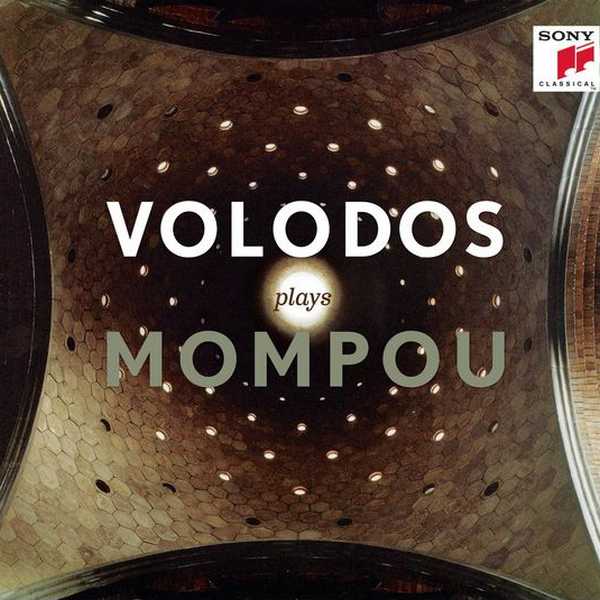

Composer: Federico Mompou
Performer: Arcadi Volodos
Format: FLAC (tracks)
Label: Sony
Catalogue: 88765433262
Release: 2013
Size: 890 MB
Recovery: +3%
Scan: yes
01. Prélude VII (Palmier d’étoiles)
02. Damunt de tu Només les flors
Scènes d’enfants
03. I. Cris dans la rue
04. II. Jeux sur la plage
05. III. Jeu 2
06. IV. Jeu 3
07. V. Jeunes filles au jardin
08. Hoy la tierra y los cielos me sonrien
09. El lago (Le lac – from Paisajes, Nr. 2)
10. …pour appeler la joie (Charme VI)
11. Preludi XII
12. Dialogues 2
13. Dialogues 1
Musica callada
14. I Angelico
15. II Lent
16. XXVII Lento molto
17. XXIV Moderato
18. XXV
19. XI Allegretto
20. XV Lento – plaintif
21. XXII Molto lento e tranquilo
22. XVI Calme
23. VI Lento
24. XXI Lento
Arcadi Volodos is one of the world’s best pianists, celebrated as a “genius” and the “new Horowitz” for the unique combination of outstanding virtuosity and profound and expressive musicality.
Volodos devotes his new CD to the hardly known Catalan composer Frederic Mompou. He believes that Mompou’s solo piano works are of outstanding quality and open new worlds.
The fact that Mompou’s music is hardly known is a key to success for this CD. It can only reveal its deep und unique quality in the magnificent interpretation of Volodos.
The music of Catalonian composer Federico Mompou (1893-1987) is almost completely unknown today. Unjustly so, in the opinion of Russian star pianist Arcadi Volodos, who has devoted his new solo CD to this remarkable musical personality.
Carrying on the tradition established by his Spanish colleagues Enrique Granados and Isaac Albéniz, Mompou’s works are subtle and delicate, mysterious and intimate, with a shimmering Impressionist palette. Mompou’s role models are always in evidence in his many piano pieces: Chopin and Scriabin, Satie and Debussy. Yet in quiet, unobtrusive fashion, Mompou evolves a musical cosmos entirely his own from these models: his music is a true discovery.
Volodos has chosen for this CD pieces from the Mompou cycles Scènes d´Enfants (1915-18), Charmes (1920/21) and Música Callada (1959-67), which were among the composer’s own favourites. In the last few years, Arcadi Volodos has regularly played works by the Catalonian composer in his recitals, prompting the Süddeutsche Zeitung to refer to his “deep sensitivity for inspired nuance”.
Fans of Catalonian miniaturist Frederic Mompou are used to looking in out-of-the-way places for his music: small labels, encores of recitals. Yet here he is, presented in full major-label splendor by Sony Classical, with a substantial hard-bound booklet, performed by Russian pianist Arcadi Volodos. It may be that confusing times are good for the reputation of this most inward of composers, but whatever the reason, this recording will introduce a lot of people to Mompou’s fascinating world. His music is essentially a compressed version of the Impressionist language, with dashes of Satie’s elliptical mode and perhaps the mysticism of Scriabin. Mompou goes further in the directions of both dissonance and diatonic harmony than did the Impressionists, and his use of simple harmony as a kind of color effect is unique in the entire concert music repertory. Some people are completely puzzled by Mompou, most of whose music proceeds at the same basic slow-to-moderate tempo. Try Volodos out! He has the knack of getting strong profiles of individual phrases while still keeping the whole thing at a sort of glimmering level. You can get a foothold with the Musica callada XV (track 20), which seems to take Chopin’s Prelude in E minor, Op. 28/4, as a point of departure. From its opening figure the listener is drawn into Mompou’s murky yet gentle world, which some filmmaker ought to exploit. The difficult-to-translate Musica callada (¡callate!, be quiet, mothers say to their children; “Music that Has Become Quiet” is close) is Mompou’s greatest work; in it, his extremely concise language, almost completely eschewing motivic development, is brought to a fascinating extreme. Volodos has the control to get something like the last bars of Schubert’s Winterreise out of the music here: it really does seem to exist on the lip of nothingness. Strongly recommended for all, and really something of a milestone.



